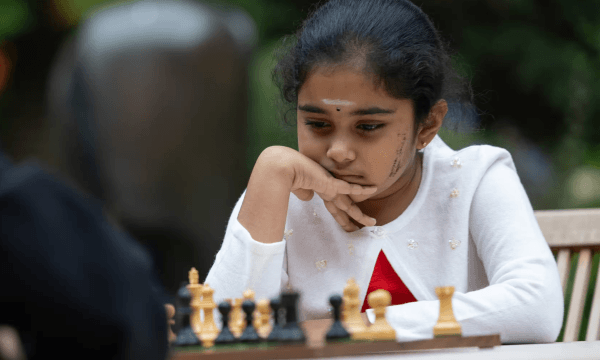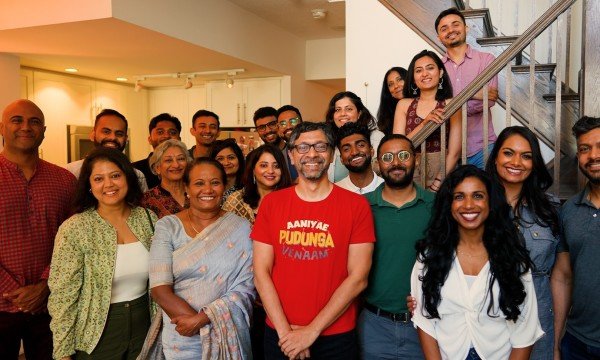
Nayani Thiyagarajah is a storyteller who uses the mediums of film, photography and theatre.
TamilCulture: When and how did your interest in your area of work first develop? What inspired you? Nayani Thiyagarajah: As a child, my uncle used to work for the Harper Collins book factory. He always kept a big old brown cardboard TV box filled in his living room closet, filled with books that he was allowed to take home with him. We used to live in the same apartment building and I remember countless treks down the stairs from our 10th floor apartment to his 5th floor home.
I’d always leave with more books than I could carry, appearing lost in the pile of books I was carrying, and subsequently getting lost in each book as I engulfed it. This is how I fell in love with storytelling. It became really simple for me after that – I loved people and I loved stories. I loved the worlds that were contained within, most very far from my own. I began to imagine and dream about the day that I could tell stories that looked like my own, with people who looked like me.
TC: Did you always know that you wanted to pursue this path?
NT: My soul has all-ways been lifted through storytelling and sharing, whether it was my own stories or others. So far, theatre, creative writing, and film have served my heart work well, allowing me to continue conjuring and helping document stories. I all-ways feel at ease when I am able to flow like water; storytelling grants me the liberty to move through the world in this way, flowing free and far, experiencing changing currents, always able to dive further into new depths. Through theatre, writing, and film, I am able to pull from real life experiences and work outside the realm of what is deemed possible by pre-existing notions or outside voices; my imagination guides me further and deeper, believing that more is possible.
With Shadeism, I pulled from an issue that was pre-existing, one that has haunted ours and other communities for centuries. It is deeply embedded in the psyche of too many people. Moved by the challenging experiences of family members and friends, my reflections on the systems and structures that influence and often dictate so many of our ideas and “ideals”, and a desire for something better for all of us, I decided to create this tool with my team, which would hopefully unearth new conversations, and inspire transformative, healing dialogue of varying degrees.
TC: What is your definition of success?
NY: My definition of success is when I genuinely connect with folks, based on my creative offerings. I feel that my creative work is my soul’s work. Therefore, if another soul connects with me based on that work, I believe it is a special and sacred connection. When my work speaks to their story and soul in some way, when they choose to share their thoughts and feelings and stories with me, when we share kind and tender and courageous and loving vibrations, I feel successful. I feel blessed and grateful.
TC: What advice can you share with those who are trying to pursue their own calling?
NT: Trust your vision. Believe that if something came to you, it came to you for a reason. Trust your work. Believe that if you are doing the work, things will work out as they are meant to. Trust the struggles. Remember there are learning curves everywhere along the road, and that the struggles are also part of the story. Trust the process. Make peace with the fact that the process rarely goes as planned, but it always leads you to exactly where you need to go. Trust yourself. Be kind, be tender, and be patient with yourself. You are everything you need – believe that with all your being,
TC: Please share with us a person or quote that motivates you:
NT: “Another world is not only possible, she is on her way. On a quiet day, I can hear her breathing.” – Arundhati Roy from The God of Small Things
TC: “To me Tamil culture is”:
NT: There is this saying I love from the Isa Upanishad, which goes: This is whole. That is whole. From wholeness, Wholeness comes. Wholeness taken from wholeness, Wholeness yet remains. I believe this when it comes to Tamil culture. Tamil culture is everything and everyone who it belongs to, and all who belong to it. Tamil culture is where and what and who we come from. Tamil culture is all that we are and continue to grow into, as individuals and as a collective. Tamil culture is everything that is still yet to come for each of us and for all of us. Tamil culture is the whole of us, and all the whole selves that are a part of it.

























